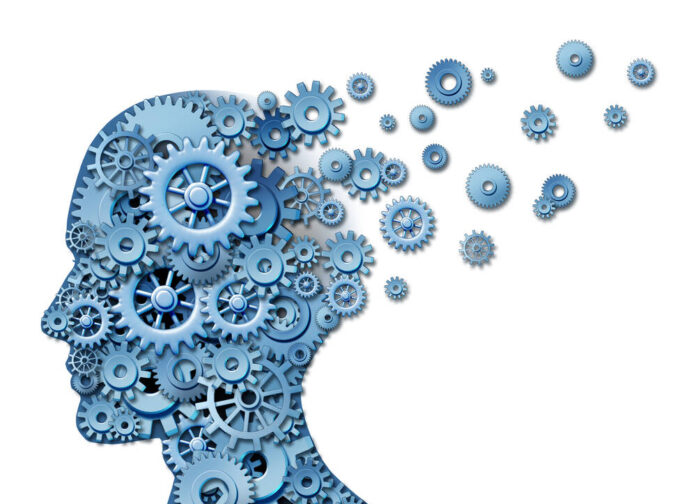
Alzheimer's is a neurological disorder that causes a gradual decline in cognitive ability, primarily affecting memory, thinking, and behavior. It is the leading cause of dementia, which can interfere with daily life activities. Alzheimer's disease progresses slowly, and symptoms typically worsen over time.
However, even though – according to the CDC – over 5 million Americans were suffering from this, it’s not usual to see early onset Alzheimer’s. Early-onset Alzheimer's affects people between 40 and 50 years old.
This progressive illness affects memory and leads to difficulty with communication and social interactions.
The challenge in the early stages is obtaining an accurate diagnosis due to many symptoms being caused by things like stress, anxiety, certain medications, thyroid problems, sleep disorders, nutritional deficiencies, etc.
A great example is stressful situations in your daily life. During these times, it’s normal to forget one or two things.
However, if you think you could have early symptoms of dementia, this article with seven signs of early-onset Alzheimer’s will help you recognize them.
Causes For Early-Onset Alzheimer's Disease
The thing about Alzheimer’s is that there are still a lot of unanswered questions about how it develops. Some proteins appear in the brain that are linked with Alzheimer's development. Two specific types of proteins are often associated with the condition: beta-amyloid proteins and tau proteins. What these proteins do is disrupt normal cellular and molecular processes and attack the areas of the brain associated with memory.
This affects daily activities and behavior.
Some genes can increase the risk of developing early-onset Alzheimer's. These include:
- APOE (Apolipoprotein E) Gene, especially the APOE E4 gene
- PSEN1 (Presenilin 1) and PSEN2 (Presenilin 2) Genes
- APP (Amyloid Precursor Protein) Gene
Risks For Early-Onset Alzheimer's Disease
The risk factors for developing early-onset Alzheimer's include:
- Genetics
- Family history
- Medical conditions like cardiovascular disease, diabetes, and head injuries.
- Environmental factors like exposure to toxins
- Lifestyle factors include a sedentary lifestyle, poor diet, smoking, and excessive alcohol consumption.
Can You Diagnose Early-Onset Alzheimer's Disease?
Diagnosing early-onset Alzheimer's involves a comprehensive evaluation by a healthcare professional, including a thorough medical history, physical examination, and various tests and assessments. The goal is to rule out other potential causes of cognitive impairment and to identify any underlying factors contributing to the symptoms. Here are some of the tests and assessments commonly used in diagnosing early-onset Alzheimer's disease:
- Neurological tests.
- Cognitive exercises.
- Neuropsychological Testing
- Blood samples.
- MRI, PET, or CTs.
- Cerebrospinal Fluid Analysis
- Genetic Testing
- Functional and Behavioral Assessments
- Family and Caregiver Interviews
7 Signs of Early-Onset Alzheimer's
Early-onset Alzheimer's is not easily detectable, but if you experience these symptoms, see a qualified healthcare professional to rule out other underlying causes.
Memory Loss
If you find yourself forgetting important things, such as special events, familiar faces that you should remember (like your mom's), or repeating questions, these could be signs pointing to memory loss.
You Have A Hard Time-Solving Problems or Planning
A person with real AD symptoms will have difficulty focusing on numbers and following or developing a plan. Struggling to follow directions or instructions, even simple ones, and needing frequent reminders.
You Can’t Finish Simple Tasks Correctly
You're having trouble focusing or maintaining attention on tasks, making it challenging to complete complex or multi-step activities like making a recipe you've made many times before.
You Can’t Find The Right Words
Experiencing difficulty in finding the right words during conversations or having frequent "tip-of-the-tongue" moments.
You Avoid Crowds And Social Events
People with AD find social events difficult. If you or someone you know is constantly rejecting going out because they feel uncomfortable when these social situations, it could be a sign of dementia.
Your Personality Changes Constantly
Changing behavior or personality could be related to bipolar disorder. However, it could also be an AD sign. Confusion, anxiety, fear, angry outbursts, or depression are common moods you could feel.
You Can’t Understand Images
Not recognizing images, especially familiar ones, can be a sign of cognitive impairment or a cognitive disorder like Alzheimer's disease.
Preventing Early-Onset Alzheimer's
Here are some lifestyle changes you can make to decrease your chances of developing early-onset Alzheimer's.
- Get regular exercise even if it's just a walk. Keeping active is very important to brain health.
- Practice great sleep hygiene. Our glymphatic system cleans our brains when we are sleeping. So having great sleep is so important.
- Eating healthier food.
- Training your cognitive skills.
- Keep learning new things. Try puzzles, pick up a new language, learn to play an instrument, or take dance classes.
Preparing for the Future
If you or a family member has been diagnosed with early-onset Alzheimer's be prepared for the future by putting things in place today.
For example:
- Buying life insurance.
- Modifying your house so you can age safely in place.
- Looking for professionals and caregivers to help.




